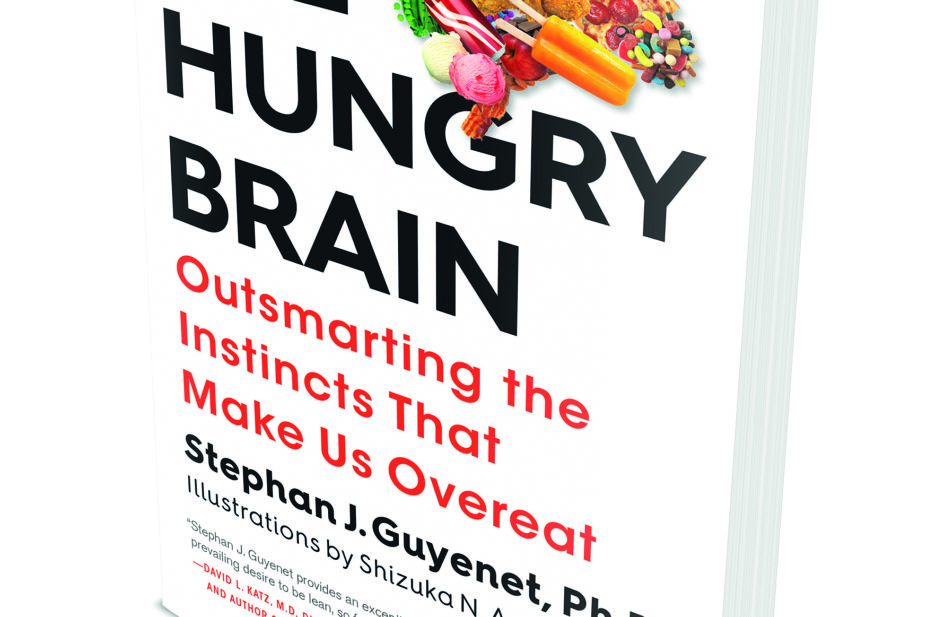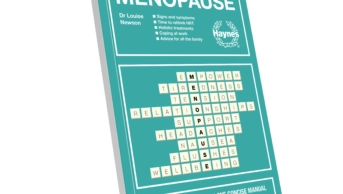
Stephan Guyenet is a neuroscientist who has been a popular blogger for many years, writing on aspects of health and nutrition. This is his first book, which begins by highlighting the scale of the obesity problem throughout the world and then, using the lamprey — an eel-like fish — as a starting point, describes how this simple organism uses a selector to decide upon a course of action. For instance, should the lamprey stay and mate or flee from a predator? It seems that our own brains use a similar selector process, albeit at a higher level of sophistry, to decide between different options when choosing what to eat.
The brain controls our behaviour, and a key driver behind our need to eat is the desire for calories. Guyenet uses a simple example (deciding what to eat when hungry) to illustrate the complexity of this task. Once the brain senses low levels of energy, signals are generated that make you want to eat, e.g. hunger pangs. You then consider the options for eating; something in the refrigerator or cupboard, or a takeaway. Let us suppose the takeaway wins; next you have to decide what sort of takeaway and then whether to have the food delivered or to collect it yourself.
At each of these stages, the brain receives competing inputs (fridge or takeaway), drive or have food delivered, and weighs the pros and cons of each option before making a decision.
Guyenet progressively takes readers on a journey, describing ultimately how certain foods are more reinforcing — i.e. that we desire them — than others and its all down to their sugar and fat content. Animal work has shown how laboratory rats love what has been termed the ‘cafeteria’ diet, which contains all the processed foods that we, too, enjoy, i.e. cookies, breakfast cereals, chocolate. The higher the calorie density of a food, the greater its reinforcing effect. Just think about what you would choose to eat when ravenously hungry; a stick of celery or a chocolate bar, pizza or pastry? Guyenet describes how our brains get excited at the sight of rewarding foods when hungry, describing his own experience of having a brain scan when hungry. Images of tasty foods cause more areas of the brain ‘light up’ compared with celery or a chair.
The central tenet of the book is that our brains desire calorie-rich foods, which both consciously and subconsciously influence our physiology and behaviour, and we are often unaware of these processes and have little control over them. The brain senses the flavour and smell of a food to assess its nutritional quality and this influences our food-seeking behaviour accordingly. As we are surrounded by highly tasty and rewarding foods, it can be difficult for us to resist them. An example would be the aroma of freshly baked bread or pastries as you enter a supermarket.
The book goes on to describe why it can be difficult to diet and how most people end up regaining any lost weight after a few years. Our fat cells produce the hormone leptin, the levels of which are registered in the brain. As we lose weight, leptin levels fall and the brain subsequently uses this internal cue (reduced leptin levels) to influence a behavioural output. We are largely unaware of this yet it drives us to be hungry and seek out calorie-rich foods — or endure a degree of misery if we do not have them. But there is more. Our brains also deploy some additional cunning tricks to thwart our efforts to diet. It reduces the metabolic rate — so we need to eat even less — and reduces energy expenditure in muscles thus conserving calories.
Guyenet describes some interesting work which showed how reducing the reward value of food lead to substantial weight loss. So, eating plain simple food, without seasoning will help you shed the pounds, but how long anyone can maintain this way of eating remains to be seen.
Unfortunately, there is no magical way to outsmart our brains. Guyenet describes the obvious things that we can do. Do not buy those rewarding processed products, eat something that dupes the brain into thinking that you are full, e.g. protein and fibre-rich foods. Get plenty of sleep, exercise and reduce stress by meditating.
This is an enthralling book which has lots of cutting-edge research (Guyenet has done a great deal of work in this area himself) and is well written. The key take-home message is that we have evolved to have a hungry brain that manipulates us to get what it wants — and there is not much that we can do to stop it.
Rod Tucker
References
The hungry brain. Outsmarting the instincts that make us overeat, by Stephan Guyenet. Pp 278. Price £14.99. London: Vermilion; 2017. ISBN 978 1 87504 128 0


